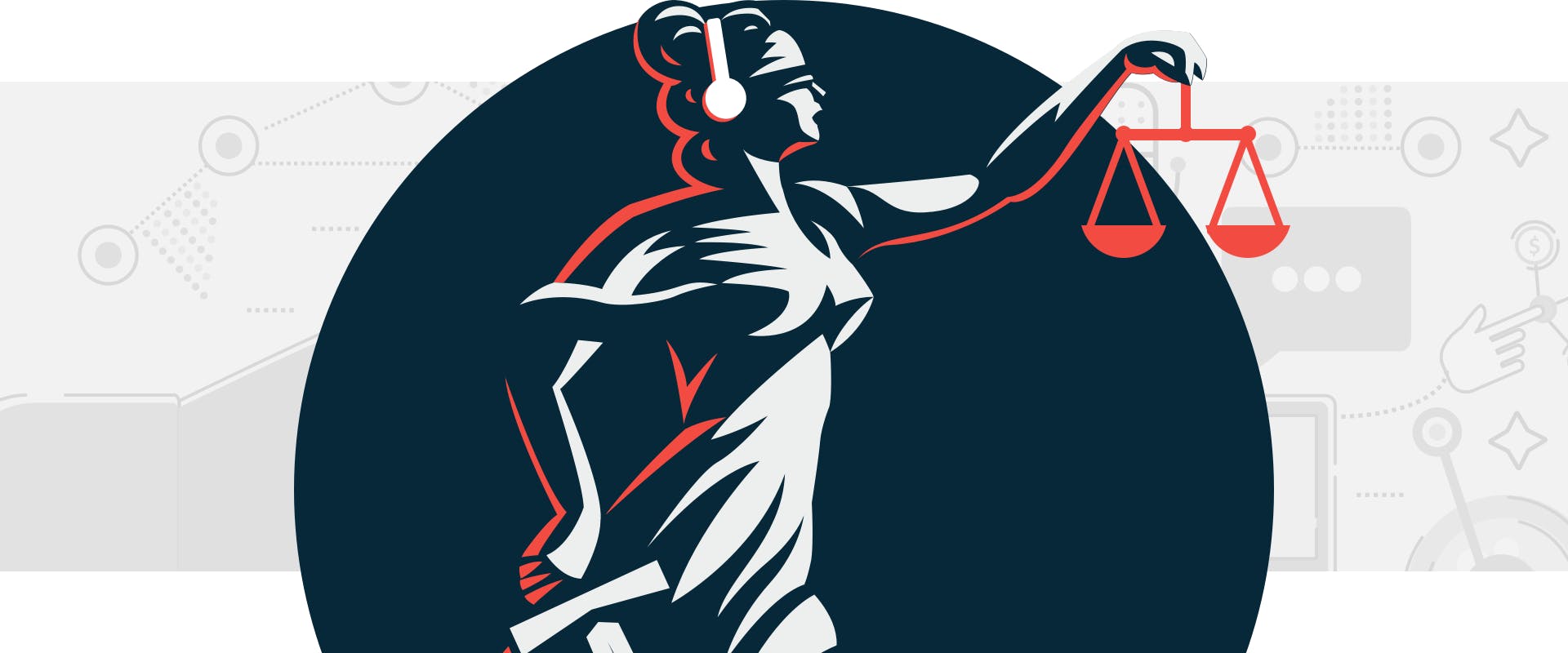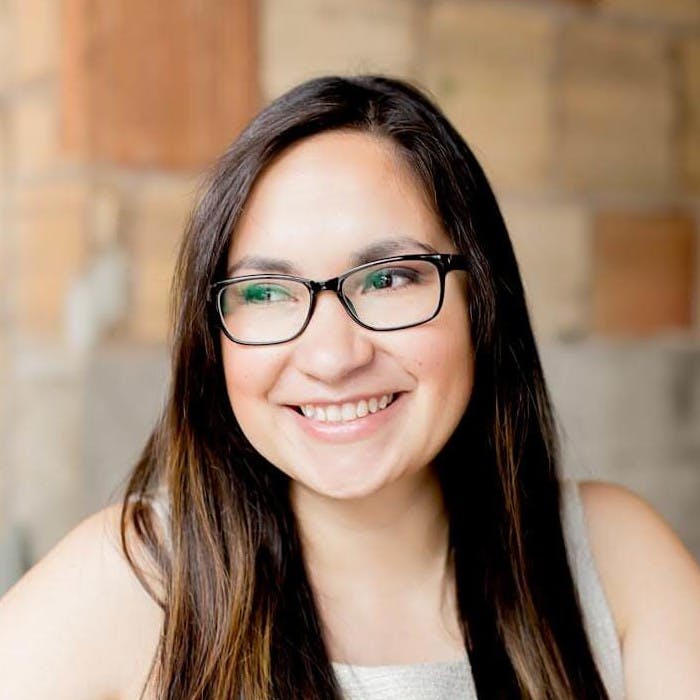
Copyright for Podcasters: How to Protect Your Podcast
DISCLAIMER: This article is for informational purposes only and does not constitute legal advice. Please contact a licensed attorney if you have a copyright issue.
What Is a Copyright?
Copyright laws are an incredibly important legal issue to the world of podcasting. Copyright laws prevent others from stealing your podcast content, and it also controls what sound bites and music you can put on your podcast.
So what is a copyright? The United States Copyright Act states that the copyright laws protect tangible expressions of ideas. Meaning, if someone takes their idea for a podcast, book, song, movie, or painting and records it, writes it, performs it, or draws it, then that expression is protected under a copyright.
Copyright laws protect “works,” so think forms of art, like books, podcast episodes, paintings, song lyrics, movies, sculptures, a piece of music, or photography. As a podcaster, the content you create and publish out into the world is a form of art, even if podcasting doesn’t seem like a form of “art.” The purpose of copyrights is to award creators for disseminating their ideas to the public by protecting the expressions of their ideas. The law rewards your creativity by protecting it, and once you are the copyright owner and holder, you have the exclusive right to use the original work.
What Do Copyright Laws NOT Apply to?
There are certain things that copyright laws do not apply to. Ideas, themselves, are not protected by a copyright or any other intellectual property protection. Rather, the expression of those ideas are protected. This concept is abstract and can be hard to understand.
The best way to understand it is through an example. The idea of a true crime podcast is not protected. Even a specific true crime podcast about Ted Bundy is not protected. However, if you record a true crime podcast about Ted Bundy, the particular content within that podcast episode is protected. Others cannot recreate that episode word for word or use sound bites from the podcast without permission from the creator.
How Do I Copyright My Podcast?
Obtaining copyright protection for a podcast is easy. There are only two requirements that must be met:
- It must be original, and
- it must be fixed in a tangible means of expression.
Originality is an easy standard to meet. A work is original if it is independently created and was made with a certain degree of creativity. All this means is that the podcast is not copied from something else. It must be an original expression. It does not have to be an original idea since ideas are not protected, but it does have to be an original expression of an idea. Also, there must be some creativity involved. This is a low barrier to meet, and only a “spark” of creativity is needed. Mainly, some creative decision making must have gone into the work. Reading a phone book on a podcast would not be protected, and it may even be copyright infringement. However, reading information from a phone book in a different order would be protected.
The fixation requirement transforms an original idea into a legally protected copyrighted work. Fixation occurs when an author puts his or her idea into any physical form. In the podcast context, this means recording. Recording a podcast meets the fixation requirement. It does not have to be posted online or available to the public to receive protection. Once it’s recorded, it’s fixed in a tangible means of expression.
To sum all that up, once your original podcast is recorded, your podcast officially has U.S. Copyright protection. There are no formal requirements to obtain copyright protection. Although not required, registration is completed with the U.S. Copyright Office, and there are a number of benefits to having a copyright registration. For one, an infringer is more likely to take a cease and desist letter serious if the copyright is registered. Also, a copyright registration entitles the holder to statutory damages in infringement lawsuits. Overall, having a registered copyright gives you a serious bargaining chip if you ever need to pursue someone for copyright infringement.
What Is Fair Use?
In special cases, copyright law allows for the use of copyright protected work without the permission from the author of the work. This is known as fair use. These special cases include using copyright protected work for comment, news reporting, criticism, parody, and research purposes. However, it’s important to note that fair use laws only apply in the United States.
Fair use is a very misunderstood concept, and you should always consult a lawyer when relying on fair use. Fair use does not give you the right to use a copyrighted work when you please. And it does not allow you to only play a short clip of a sound recording, piece of music, audio file, or other digital media to avoid copyright infringement. This also includes intro and outro music that you may use for your podcast. There are very strict limitations. Fair use is not an exception to the law, but rather a defense you can raise if you’re sued for copyright infringement. So yes, you can still get sued, even if you can rightfully claim fair use.
A “comment” example would be a true crime podcast about Ted Bundy where the podcaster used interview sound bites. Even though the Ted Bundy interview is most likely protected with a copyright, the podcaster could possibly use sound bites to provide commentary regarding the interview. A criticism example would be a movie review podcast using a sound clip from a movie. The movie review podcast could use the sound clip to criticize the movie even though another party owns the copyright to the movie. A parody example would be taking sound clips from songs, TV shows, or movies and using them as out of context for comic relief.
Unfortunately, there is no bright line rule to determine if someone’s use is fair use. There are factors courts consider to determine fair use, which includes:
- the purpose and character of the use, including whether the use is of a commercial nature or is for nonprofit educational purposes,
- the nature of the copyrighted work, such as whether the work is fiction or non-fiction, published or unpublished,
- the amount of the work used in relation to the copyrighted work as a whole, such as using a poem in its entirety, or using one chapter from a long book, and
- the effect of the use upon the potential market for the copyrighted work.
In the podcast context, a good rule of thumb is to ask, “Am I commenting, criticizing, or making fun?” One of these three needs to follow the use of any copyright protected work to have a shot at claiming fair use. Also, one of the three needs to be legitimate. Playing an entire song and then saying, “that was good,” is not a legitimate comment on the song and will not create a very strong fair use defense. Ultimately, only use what is necessary to make a comment, criticize, or poke fun.
The "30 Second Rule" Myth
A common myth associated with fair use is the “30 second rule” for using music. This rule does not exist. Using 30 seconds (or any portion) of copyrighted music for a podcast or YouTube video without the author’s permission is copyright infringement. When it comes to music, it is best to use royalty-free music, get permission from the owner, or pay for someone to create music for you. There are plenty of websites that have lots of royalty to free music available for download and there are a lot of inexpensive musician out there willing to create music for you.
And don’t forget that fair use is a U.S. copyright law that only applies to works created in the U.S. International works are going to be subject to the laws in the country of creation and the fair use, if any, standards might be different.
Creative Commons License
As a podcaster, blogger, or other digital media user, you have most likely heard of a creative commons license. Just like fair use, there are many misconceptions around creative commons. Just because a piece of digital media may show that it is eligible for use under “creative commons,” this does not mean the work is part of the public domain. And to be clear, creative commons is not a law or statute, it is a website where creators can submit their work, and the website licenses the work for the creator. Different types of content can be found through creative commons, including music licensing from record companies, photography licensing, sound recordings, and video recordings.
It is incredibly important to read the fine print when curating content from creative commons. The website allows creators to stipulate what each license contains, so every piece of content can have a completely different license. One copyright license may state that anyone can use the photo for any purpose. Another license may state that anyone can use the photo for any purpose but the user MUST give credit to the copyright owner. Additionally, a license can state that the use may only be for non-commercial purposes, which means you may not use it for your business or podcast.
Obtaining content from creative commons can be very useful for those on a budget. However, you can quickly find yourself in hot water if you do not abide by the fine print that comes along with the license. There is currently somewhat of a scam going on where content creators will post their content on the creative commons website and stipulate that the licensee must give credit and maybe some other small condition. These copyright holders will then scan the internet for any use of their content that does not strictly follow the license terms. Once the unauthorized use is found, the copyright holder will then sue each user and get a quick settlement since the users do not want to pay the attorney fees for the lawsuit.
If you don’t want to receive a cease and desist letter, or even worse, be sued for copyright infringement, create your own content. Or retain an intellectual property lawyer that is knowledgeable with social media and digital media. Copyrights can be a very complicated area of law, and when you throw the internet into the mix, you can find yourself in a big mess pretty quickly. Please consult an attorney before trying to use copyright protected work without permission.
Message from Buzzsprout: Be exceptionally careful when dealing with music like on a music review podcast. Even if you haven't seen a copyright notice for a song, you should assume it is covered by copyright and that the rights holders will enforce their rights.
Apple, Spotify, and Google Podcasts regularly police their directories to find unlicensed use of music, especially music that is in Spotify or Apple Music (formerly iTunes). If your podcast uses licensed music or sound effects we recommend including your license information in your podcast show notes.
ASCAP, SESAC, and SoundExchange licenses do not cover music used in podcasting, as podcasts are not considered public performances.
Andrea Sager
Andrea Sager is the owner of Andrea Sager Law PLLC, a law firm that works exclusively with small businesses, including podcasters. Andrea Sager is also the creator of The Legalpreneur Membership, which provides all-access to her and her team every month for a low monthly fee.
